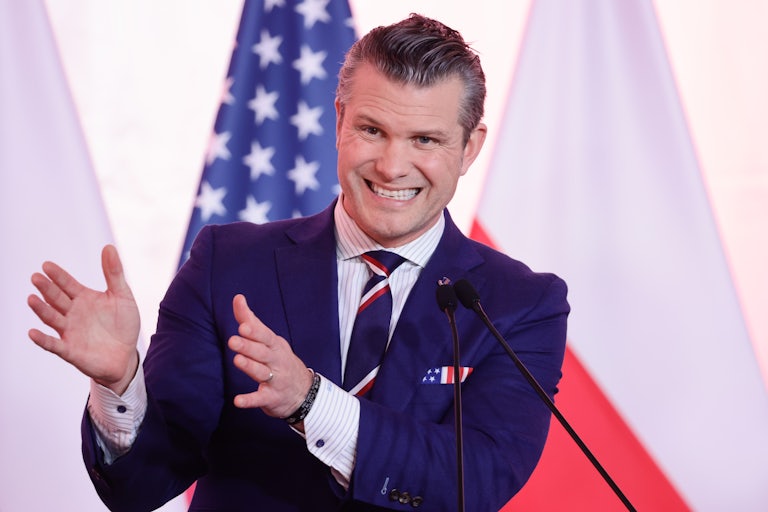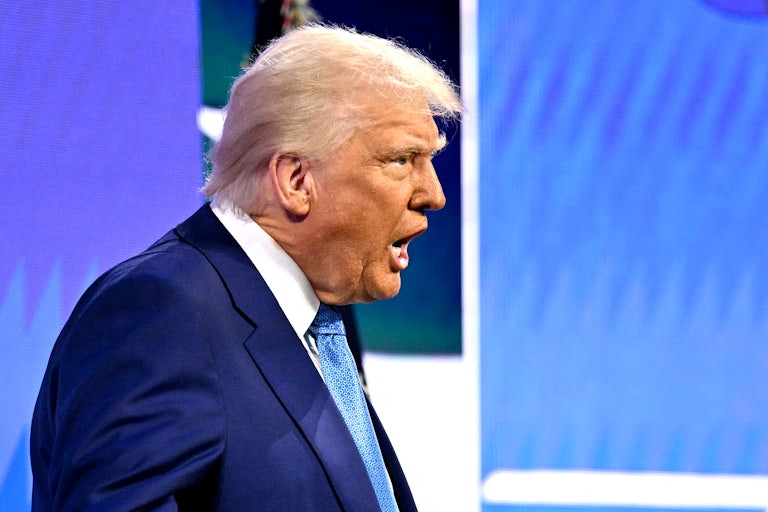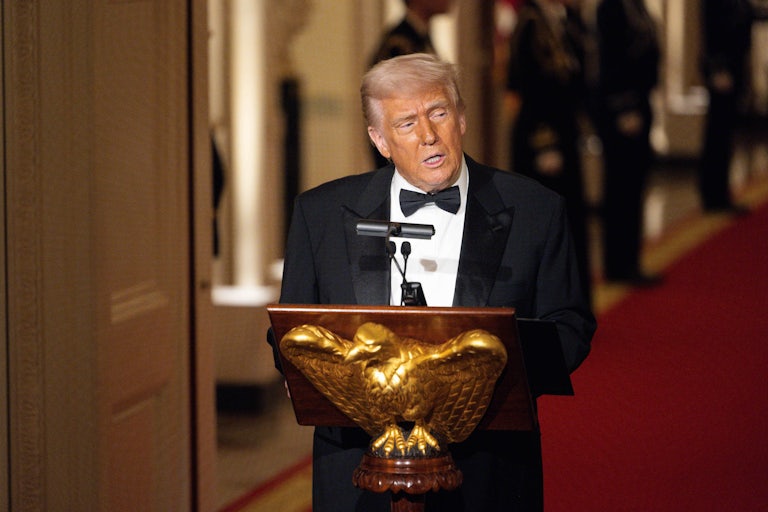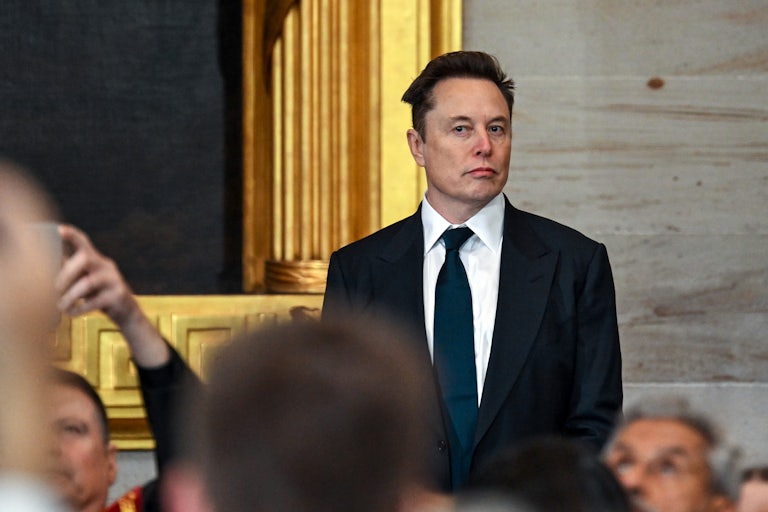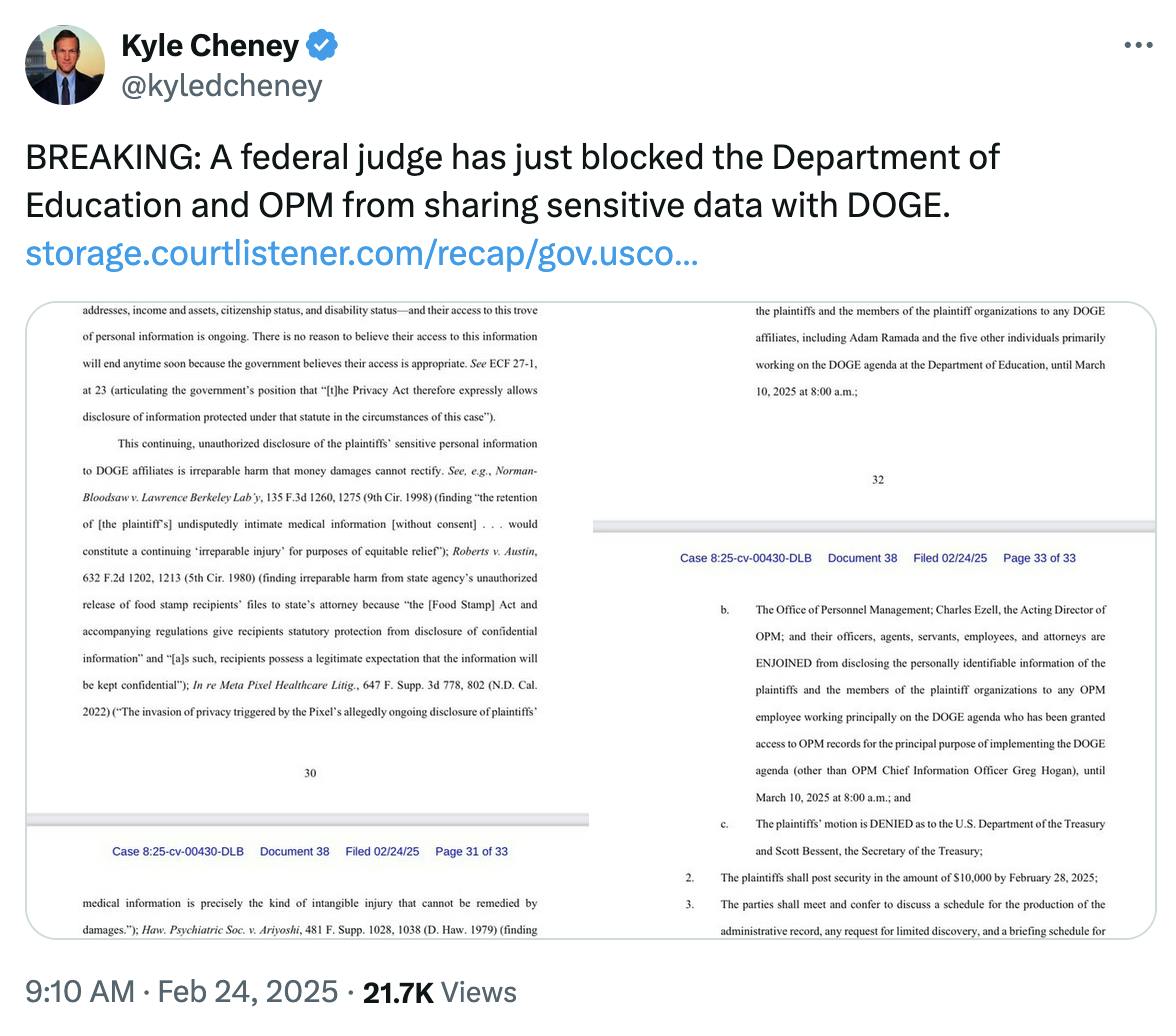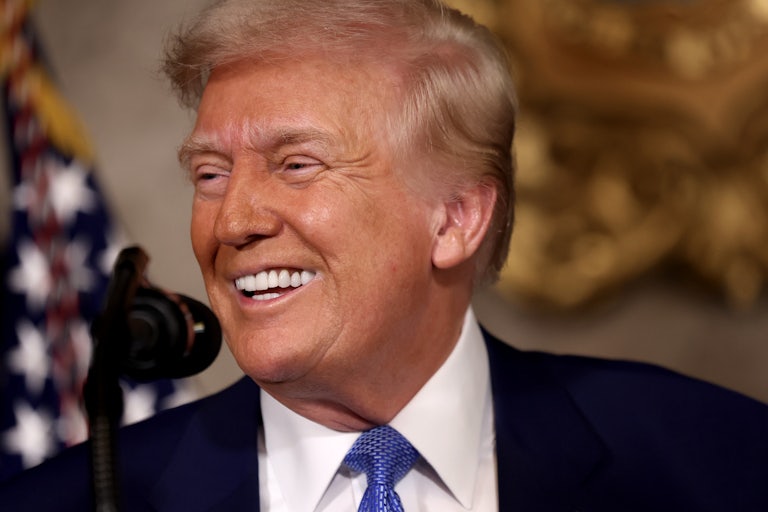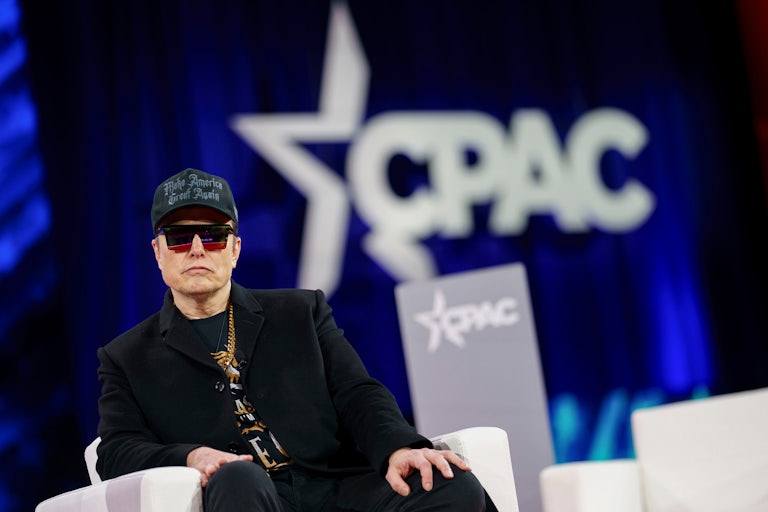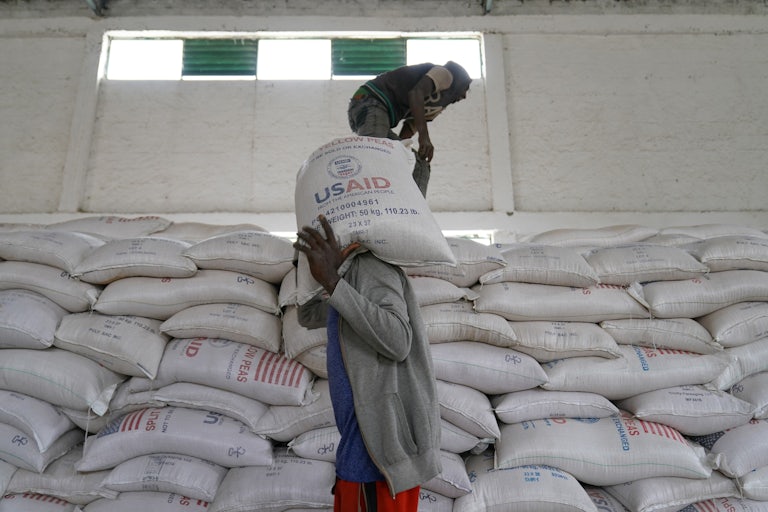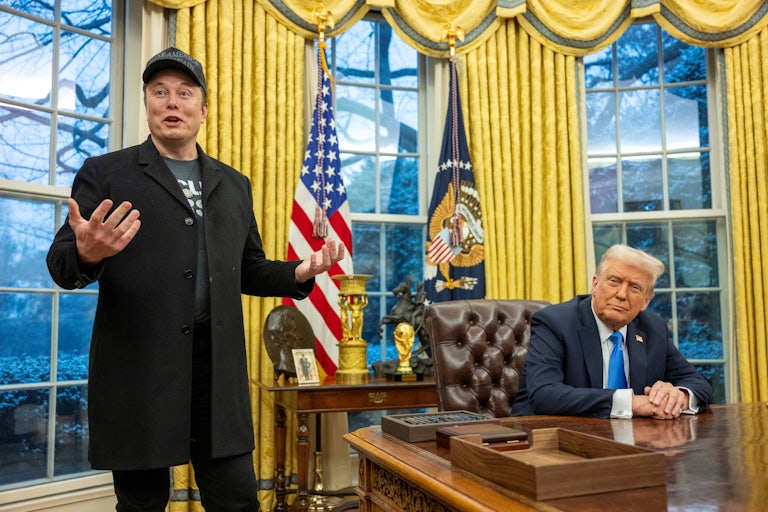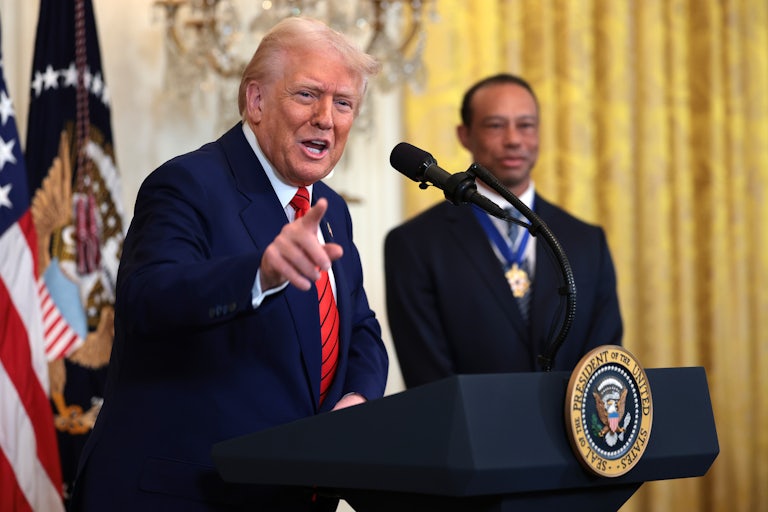Trump Adviser Fumbles Key Question in Bad Sign for Ukraine Peace Talks
Donald Trump’s envoy Steve Witkoff was asked what Russia is giving up in the peace talks.
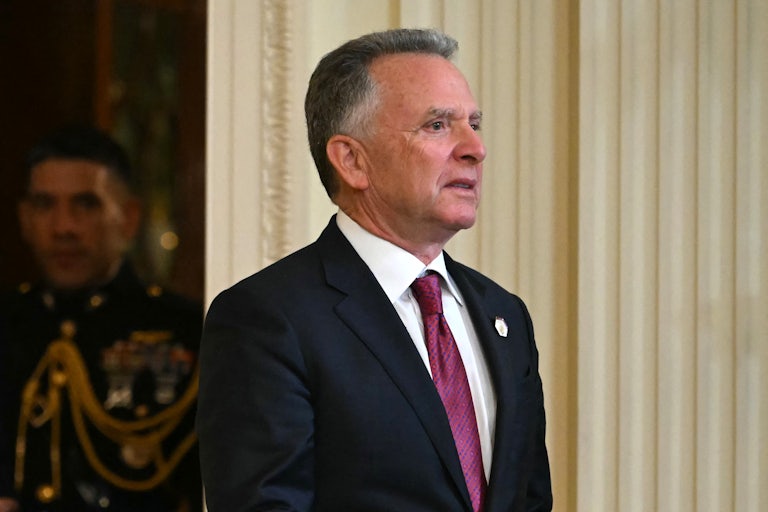
Russia will get practically everything it wants so long as the Trump administration is overseeing the peace talks over the Ukraine war.
Over the past several weeks, Trump’s officials have negotiationally ceded land and military protection for Ukraine—but words fail them when pressed about what exactly Russia will have to give up in order to end the war.
Real estate developer turned U.S. special envoy to the Middle East Steve Witkoff spoke with Russian officials last week regarding a potential peace deal. While speaking about the meeting with CNN’s State of the Union on Sunday, Donald Trump’s longtime friend couldn’t detail one thing that Russia would actually have to compromise on in the arrangement.
“What concessions will Russia have to make?” prompted CNN host Jake Tapper.
“Well, I think, in any peace deal, each side is going to make concessions, whether it’s territorial concessions, whether it’s economic concessions. I think there’s a whole array of things that happen in a deal,” Witkoff said.
“And you’ll see concessions from both sides,” Witkoff continued, not naming a single item that Russia will have to concede. “And that’s the president’s—that’s what he does best. He brings people together. He gets them to understand that the pathway to peace is concessions and consensus-building. And I think you’re going to see a very successful result here.”
Witkoff can't name a single specific concession Russia will have to make as part of a peace deal pic.twitter.com/jHCVYlSYyc
— Aaron Rupar (@atrupar) February 23, 2025
Russian forces crossed the Ukrainian border on February 24, 2022, which Russian President Vladimir Putin tried to justify by falsely claiming that he needed to protect civilians in eastern Ukraine. But in a jarring attempt to rewrite history, Witkoff also denied those facts.
“The war didn’t need to happen. It was provoked. It doesn’t necessarily mean it was provoked by the Russians,” Witkoff told CNN. “There were all kinds of conversations back then about Ukraine joining NATO. The president has spoken about this. That didn’t need to happen. It basically became a threat to the Russians.”
While speaking at a NATO summit earlier this month, Defense Secretary Pete Hegseth explicitly outlined that the Trump administration’s peace talks with Russia had taken several bargaining chips “off the table.”
That included Ukraine’s possible NATO membership (something the military alliance had promised in 2008), the possibility of a U.S. military presence in Ukraine to enforce postwar security guarantees, and the end of NATO missions to Ukraine. He also added that it would be “unrealistic” for Ukraine to return to its prewar borders, effectively ceding land to Moscow.
The announcement came as a complete 180 on American and NATO policy regarding the Eastern European country, and left U.S. allies and defense experts reeling. The deal, per Trump’s former national security adviser John Bolton, amounted to Russian propaganda and was practically “written in the Kremlin.”
On Friday, Politico noted that Trump had caved to Russian talking points several dozen times, closely aligning the U.S. president with the foreign dictator.
